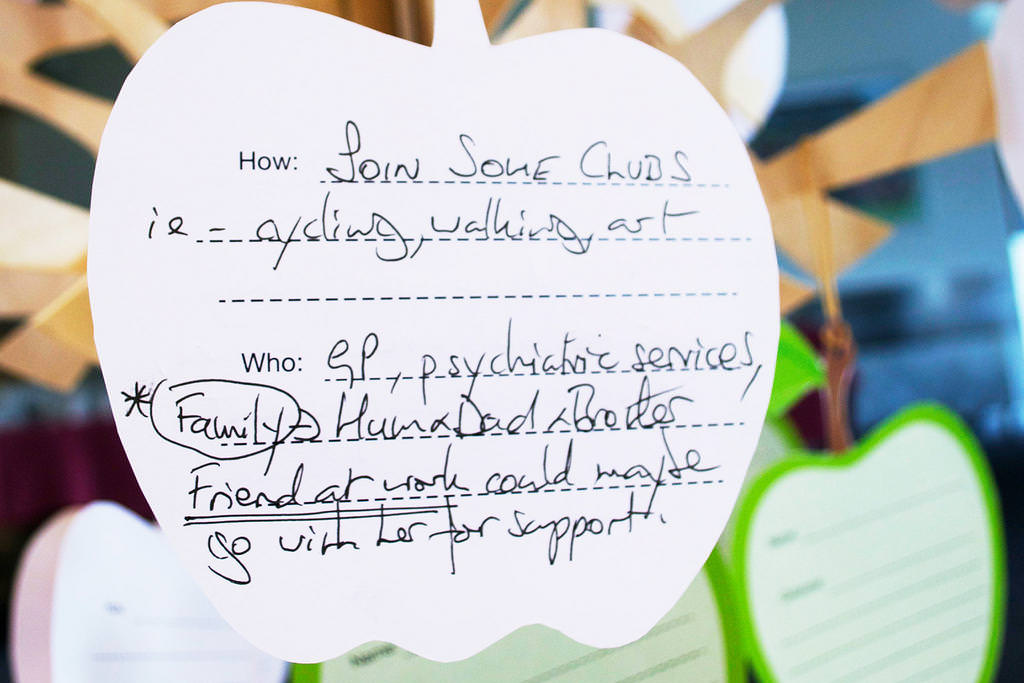
This is a very difficult question to answer, as it is not so straight forward. I say that because everyone with mental heath issues is an individual. Ideally I would like to suggest that mental health professionals right from the psychiatrists and GPs to hands on care givers know how this new way of delivering social care services and the payment method works (as I see it).
I would like to see workshops set up for everyone working in mental health services.
I would like to see a group of people trained to run these workshops, ideally who have no connection to local councils or working in a social work setting. I say that because I think there needs to be no barriers. They should be aware of mental health, maybe ideally these 'trainers' could be carers or people with mental health problems themselves. I would also like to see included in the training, learning about how to deliver a package that would suit the needs of individuals.
What you teach to a GP or a social worker may be different to what a carer or a family member needs to find out. Where would they get reliable information? Could this take a few weeks or a few months or is there even time to discuss fully how this would impact on a persons life? Also an online support tool would be of use as people could go over it in their own time or to refresh their memory.
In our Pilotlight workshops I have found out that you need to support each other while learning about self-directed support. This should hopefully continue when mental health professionals are learning about self-directed support. In Stockport they have already had a big trial on how self-directed support could help people like myself. We should be taking their learning and maybe try and better it to work in the Moray area. Or just accept that their report worked and just run with it - as they say, ‘if it aint broke don't fix it'.
Understanding of self-directed support seems straight forward, picking up the leaflet that you might find in the library, surgery, support group. People thinking about accessing self-directed support may feel optimistic that this could be a better way of getting a service or they could feel anxious about change. Whether someone is optimistic or anxious, if mental health professionals know about self-directed support and how it works, they can be more reassuring to the person they are supporting.
